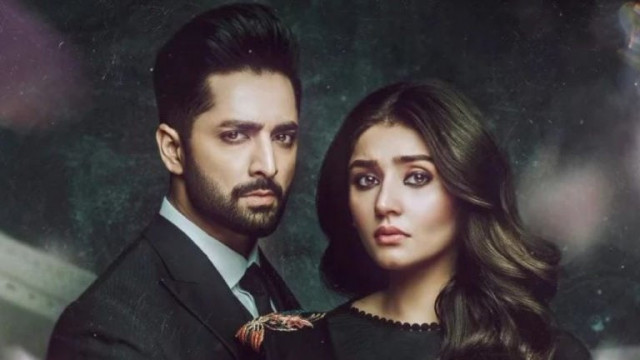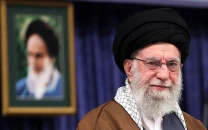Abusive, not amusing!
Why it acceptable to depict repeated abuse of women by men and to glamorise their menacing conduct?

Drama as an entertainment genre dates back to the early Greek period in the West and the Sanskrit theatre in the East. It used to be usually tragedies depicting abject misery or comedies/satires full of farcical antics often performed in the streets upon a makeshift stage.
The obvious purpose of the drama/play was to tell a story based on real life, using hyperbolic references to depict issues. And while telling stories, either of the common man or of heroic deeds undertaken by mythological figures, there was always the, ‘moral of the story’ and good defeated evil most commonly.
Fast forwarding through the literary ages we can see that while dramatic forms experienced several changes ― from classical narratives of gods and goddesses in the medieval age to the aristocratic comedies of the Restoration period to Shakespeare’s plays and romantic comedies in the Elizabethan age to the modern and post-modern realism ― the essence of ‘drama’ has remained the same. Entertainment with a moral aftermath.
Entertainment may come with its share of cathartic tears, with laugh out loud comedy, through fantasy to erase reality or with stark realism in the telling of simple stories. Whichever form the story telling takes, neither entertainment nor social messaging can be absent from dramatic narratives.
Pakistani dramas have also had a very illustrious journey and Urdu dramas can be traced back more than a 100 years when Agha Hashar Kashmiri began his writing career by adapting Shakespeare’s Measure for Measure in the late 1800s. And many still remember that not too far back in the day, Indian viewers used to try tuning into PTV to watch Haseena Moin, Bajiya, Ashfaq Ahmed plays performed to perfection by our thespians of yore. Though the onslaught of Indian saas bahu kahanis did take over cable TV briefly in the first decade of the 2000s ― when each climactic shot was repeated thrice ― Pakistani drama producers / directors soon realized that actresses sleeping in full make-up and jewellery and waking up without a hair out of place was just plain stupid.
It’s been over ten years now since the Pakistani drama scene started making waves again. Skilled stories, slick directions, and credible acting have won audiences internationally and Pakistanis settled abroad follow Pakistani TV dramas diligently. Consequently, it’s not just the production quality of plays that has evolved, but also audience preferences, understanding and competence in measuring the worthiness of a play. The collective intellectual merit of the audience has risen hugely because of information explosion via the internet and a viewer is quick to gauge the merit and worth of a story. The audience has become insightful and even an unlettered domestic worker can add a few pithy comments to a stupid storyline.

Granted that TV watchers comprise a mix of varying social/intellectual layers, and not every play may necessarily be liked by everyone and considered watchable by one and all. A sobbing mother’s woes may be of interest to some, while Nabeel Zafar’s clowning in Bulbulay or Fawad and Mahera’s fragile, misunderstood relationship in Humsafar may hold another’s interest. Art and entertainment is free to be like a smorgasbord, catering to a varying palette. And while some may find a play to be sub-standard, boring etc., another might enjoy the same production. It is agreed that art is subjective, and there’s really no accounting for tastes.
Nevertheless, artists, especially creators of stories catering to a mass audience have some sort of social responsibility ― and by this I must add that official moral policing is not what this refers to. This is specifically about glamourising abuse.
Our entertainment industry has done commendable work to depict that as a society, we will not accept or condone any form of abuse. Plays like Udari and Dar Si Jaati Hai Sila, are just a few of the remarkable storylines to our drama industry’s recent credit. Enormous amount of effort has been put in by storywriters and directors/producers to address mental darkness and rebuff norms deeming it ‘okay’ for husbands, wives or even parents to bully in the name of love or family traditions and cultural compulsions.
So when a play like Kaisi Teri Khudgarzi (KTK), which audaciously glamourises abuse, is allowed to air without even a small disclaimer to announce that “we do not condone any kind of violence,” as an audience we are duty-bound to question the appropriateness of such a shameless storyline. It is obvious that in the eyes of our censor board smoking or partaking alcohol is much worse as those scenes always carry a disclaimer of ‘smoking is injurious to health’. While a woman’s life being ruined by a maniacal man is just normal behaviour allowed to happen in a society where a female life is cheap and bound with traditions and where only she is deemed the keeper of morality.
Who are these people that comprise our censor board and nourish such vile notions and then are quick to condemn the depiction of our realities as ‘repugnant’? I don’t recall any storyline with landlords committing various murders and girls being hunted down by obsessive lovers ever deemed repugnant!
While there are several dramas on TV where writers/producers/directors still seem to be living in the past when weeping, helpless women were pushed around by husbands and parents, KTK takes violence to another level of disgrace and is one of the most disturbing stories on local TV.
In a country where we have incidents like what happened to Noor Muqaddam, do writers really think that showing such sadistic behaviour towards women is justified for the sake of a drama serial?
The track is beyond redemption. First it shows the horrifying behaviour of the ‘anti-hero’ (he is not qualified to be called a hero), and then by giving the girl no way out, her family falls in with the anti-hero’s merciless manoeuvers. The way the story has turned, it is even more ‘repugnant’ to watch with the man’s attempts at turning over a new leaf and the girl’s family ― which earlier supported her in running/hiding from him – is now lecturing her on saving her marriage and telling her how much he loves her.
Love? Really? The same love which Khadija Siddiqi’s spurned admirer showed by stabbing her 23 times?
Our children ― daughters and sons ― need to be taught lessons at a very early age that abuse in any form is wrong. Verbal, physical and even financial. You neither take it nor use it on others.
Television is a very sensitive medium and the audience is far reaching. Writers must realise that stories which depict spurned emotions and violence must also have to have a dire repercussion. What message are we giving otherwise to impressionable, uneducated males, leading them to believe that it is acceptable to use any means to deal with rejected advances, even brute force? It’s not just men but even women fail to realise that abusive behaviour comes in many forms.
Our parents were a product of institutionalised bullying where, “because I say so,” was enough to get their offspring – of any age – to bow to their wishes. It is not so anymore and it should not be. Children have a right to make their career choices, their life partner choices which many parents still believe it is only the parent’s right. Brute force even by parents is objectionable.
Several unrealistic and archaic storylines are even now being aired on the uncountable entertainment channels with the same old storyline of saas-bahu issues or spurned love and the resulting psychotic behaviour of protagonists. Particularly stories of parental abuse abound on TV which comes in insidious ways of guilt tripping their children and ruining lives. But the mental and physical torture glamourised in KTK, which is now turning into a cheesy love story of the abuser and his victim, goes beyond all moral boundaries. This is purely the Stockholm syndrome being excused as a misplaced argument of love conquers all.
It’s a sincere wish, nay plea, that viewers take out time to object more on sub-standard drama productions on social media rather than spend time pointing fingers at stars’ dress codes in their off screen moments and wondering about other people’s married bliss ― or lack thereof ― which is no body’s business but the couple’s.
Sending a message that abusing girls is ok, is a crime ― which KTK has clearly done ― against which action should be taken and alleged social workers should stand up. And by standing up it should be noted that it’s not just about joining the bandwagon of a popular cause but to actually want someone held accountable and to say that viewers should be treated with more respect.
If viewers don’t show how offensive it is to be treated as fools and simpletons by drama producers/directors, we will keep on being dealt out low quality productions with half-baked or psychotic affirmations of criminal ideas.
If you read the PEMRA regulations regarding, ‘Prohibition of broadcasts or CTV operation’ it says that, “The Authority shall by order, giving reasons in writing for declaring the order, prohibit any broadcaster or CTV operator from broadcasting or re-broadcasting or distributing any programme if it is of the opinion that such particular programme is likely to create hatred among the people or is prejudicial to the maintenance of law and order or likely to disturb public peace and tranquility or endangers national security or is pornographic or is offensive to commonly accepted standards of decency.”
With such a broad mandate PEMRA can obviously pick and choose whatever it wants to block as per their (i.e. patriarchal) interpretation of morality, decency and religious connotations and the dos and don’ts therein, which are mentioned more than once in the Regulations.
However, giving PEMRA its due, their actions are definitely more lenient (or just plain lazy) and more objective than the Pakistan Censor Board whose members’ cerebral reliability is more questionable particularly about what they think is ‘repugnant’.
In the case of Kaisi Teri Khudgharzi, the premise should have definitely been questioned by PEMRA under its ‘offensive to commonly accepted standards of decency’ clause.
A heroic and blissful culmination of an abusive and toxic pursuit should have been scrutinised properly. A strong punishment was needed for such a volatile, conceited, chauvinist and heartless stalker of an innocent girl whom he happens to briefly glance during one of his cold-blooded acts of civil disobedience and decides in a heartbeat to menacingly hound her.
What a shame for all victims of abuse that we are trivialising their suffering and creating entertainment based on incidents that have ruined their lives.
The writer is a former magazine editor, and columnist covering social and geo-political issues and can be reached at maheenrashdi@gmail.com. All information and facts provided are the sole responsibility of the writer.



















COMMENTS
Comments are moderated and generally will be posted if they are on-topic and not abusive.
For more information, please see our Comments FAQ